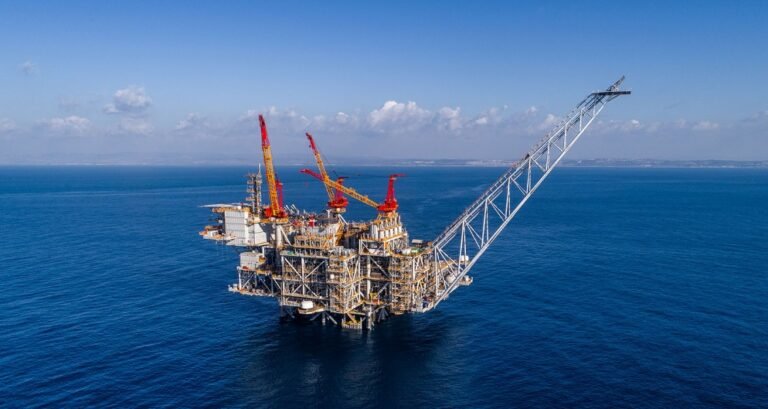However, the Middle East remains a powder keg, and the slightest spark could reignite hostilities. If Iran were to close the Strait of Hormuz, oil prices could skyrocket, and the global economy would undoubtedly suffer,” voiced Tom Pugh, Commodities Economist at Capital Economics.
As the situation escalates, businesses and governments around the world are closely monitoring developments in the Middle East to assess the potential impact on energy markets. The uncertainty surrounding the conflict between Israel and Iran is contributing to volatility in oil prices and disrupting shipping routes, highlighting the interconnectedness of global energy markets and the fragility of energy security in the face of geopolitical tensions.
With major offshore oil and gas hubs going offline and the specter of further disruptions looming, the energy and shipping industries are bracing for a period of heightened uncertainty and potential supply shortages. The conflict between Israel and Iran has once again underscored the importance of diversifying energy sources and investing in renewable energy technologies to reduce reliance on volatile regions and mitigate the risks associated with geopolitical instability in key energy-producing areas.
The coming days and weeks will be crucial in determining the long-term impact of the conflict on global energy markets and the broader economy. As tensions in the Middle East continue to simmer, stakeholders across the energy and shipping sectors must remain vigilant and prepared to navigate the challenges and opportunities that lie ahead in an increasingly unpredictable and volatile geopolitical landscape.
Overall, the future of energy markets remains uncertain against the backdrop of the Israel-Iran conflict. While the initial response to the conflict has been relatively muted, the potential for escalated tensions and disruptions to oil and gas production in the region could have far-reaching consequences. Wood Mackenzie’s analysis highlights the critical role that Iran plays in global energy markets, particularly through its control of the vital Strait of Hormuz.
As the situation continues to evolve, global oil prices are likely to be influenced by geopolitical developments and the potential for further disruptions to production and exports. While the risk premium in oil prices may ease in the coming weeks if attacks on infrastructure are avoided, the specter of a more significant impact on prices remains if Iran chooses to escalate the conflict.
For now, the markets are on high alert for any further shocks that could impact energy prices and global supply chains. The US, as a net oil exporter, may be better positioned to weather a surge in crude prices, but the potential consequences for American consumers and the broader global economy remain a concern. As the situation unfolds, stakeholders in the energy industry will need to closely monitor developments and be prepared to respond to any unforeseen challenges that may arise.
The Israel-Iran Conflict and Its Impact on Global Energy Markets
The ongoing conflict between Israel and Iran is not just a regional issue but one that has far-reaching implications for global energy markets. The recent escalation of tensions between the two countries has raised concerns about the stability of oil and gas supplies, leading to fluctuations in prices and potential disruptions in supply chains.
According to Wood Mackenzie, the conflict could have wide-ranging effects on global oil and gas markets. Brent crude prices have already seen fluctuations, with a significant increase following Israel’s strikes on Iran’s energy infrastructure, such as the South Pars gas field. This shift towards targeting energy assets is seen as a new strategy, with economic warfare becoming a prominent tactic in the conflict.
Energy analysts warn that further escalation could put Israel’s energy assets and Qatar’s operations at risk, leading to disruptions in energy exports and impacting global supply chains. The Strait of Hormuz, a critical transit point for oil shipments, could face potential closure, causing oil prices to spike and affecting economies worldwide.
James Hill, CEO of MCF Energy, highlights the significance of the conflict on oil and gas prices, emphasizing the importance of the Strait of Hormuz for global energy trade. While the possibility of its closure remains a concern, Hill believes that the economic consequences for Iran would be severe, as the country heavily relies on the strait for imports and exports.
The complex geopolitical dynamics in the Middle East have led to alliances based on historical grievances rather than mutual cooperation. Finding a lasting peace in the region requires a shift towards reconciliation and building trust among all parties involved.
As the conflict continues to affect energy markets, there are concerns about its impact on the transition to a low-carbon and sustainable energy future. Investor confidence in green energy projects may be jeopardized, leading to delays in the shift away from fossil fuels.
Overall, the Israel-Iran conflict underscores the importance of energy security and the need for global cooperation to ensure stability in energy markets. Finding a peaceful resolution to the conflict is essential not only for regional stability but also for the future of global energy supply.
Disclaimer: The views and opinions expressed in this article are those of the author and do not necessarily reflect the official policy or position of Offshore Energy.

